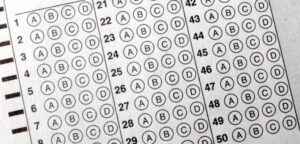
Incorporating Reflection Questions on Final Exams
Most professional program curricula focus on the required specialized knowledge and skills to meet the profession’s needs. Yet graduates need more than subject matter competencies to meet the requirements of their professional work. Our graduates must be capable of solving complex problems and have dynamic











